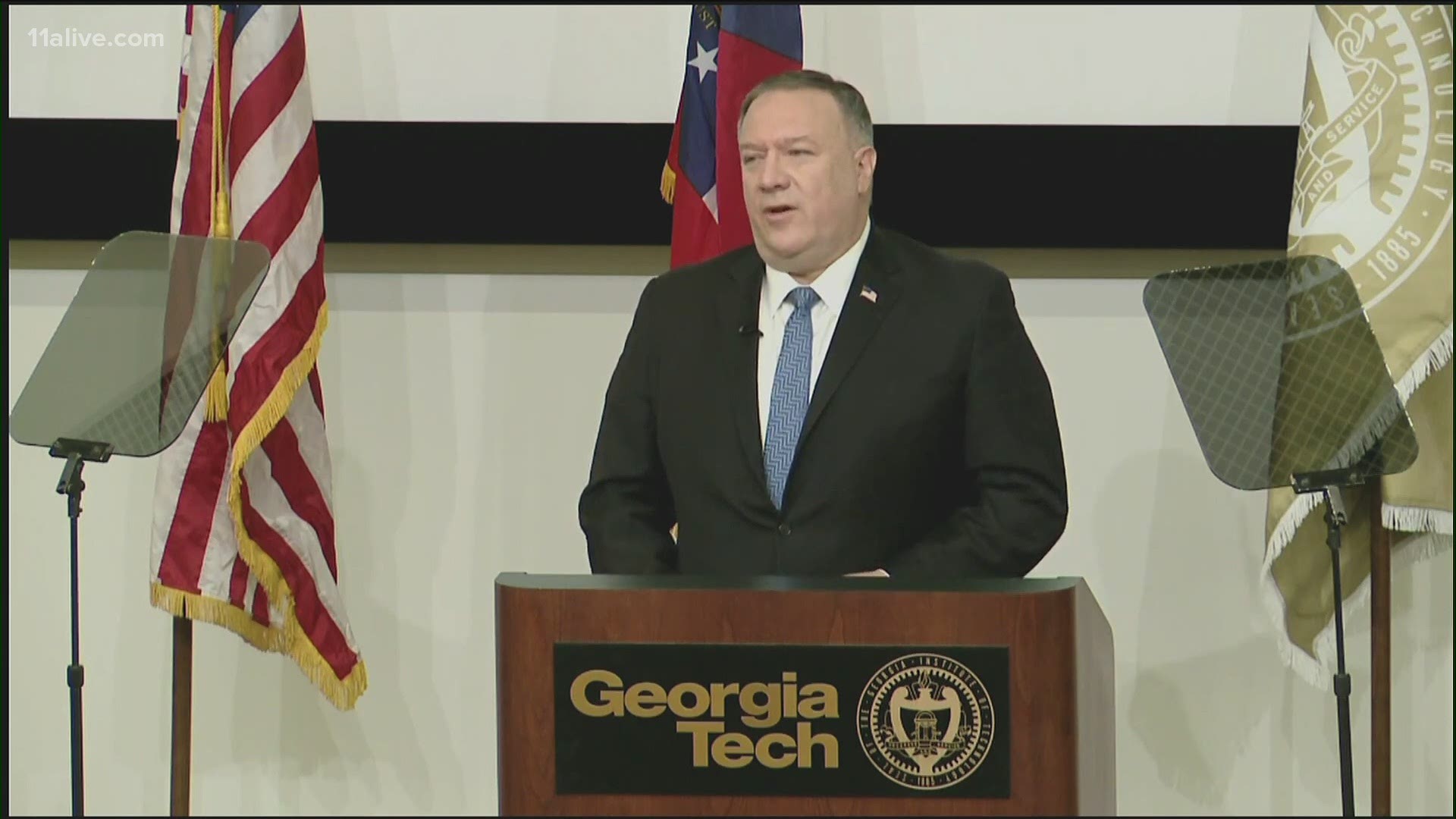ATLANTA — UDPATE: Sec. Pompeo's talk has concluded. You will be able to watch the full remarks shortly on our YouTube channel.
Original story below
U.S. Secretary of State Mike Pompeo will be delivering remarks at Georgia Tech today on China, a country he has blamed for the coronavirus pandemic and that he considers a significant geopolitical threat.
According to a release from the school, the talk will touch on "the China challenge to U.S. national security and academic freedom" and last from 10 a.m.-11 a.m.
It will be held on campus, and the school said space would be limited in order to social distance. Masks will be required.
With Georgia in the spotlight as President Donald Trump continues his quest to try and overturn the 2020 election results here, it's not clear if Pompeo will deviate from the subject of China and discuss political events here.
The secretary has frequently advocated for a more confrontational approach with China, in line with what has largely been the stance of the Trump administration the last four years.
In similar remarks given this summer, Pompeo said "we have to admit a hard truth" about the U.S. relationship with China.
"We must admit a hard truth that should guide us in the years and decades to come, that if we want to have a free 21st century, and not the Chinese century of which Xi Jinping dreams, the old paradigm of blind engagement with China simply won’t get it done," Pompeo said in California in July. "We must not continue it and we must not return to it."
Critics have countered that an overtly confrontational relationship between the U.S. and China would result in a new Cold War, one that would impede progress on pressing international issues such as climate change.
"It would fracture the international community on issues on which there should otherwise be widespread cooperation. It would build walls between economies, scientists, scholars, and ordinary people," Jeffrey A. Bader, a former NSA official on Asian affairs in the Obama administration, wrote in August. "It would likely foment ethnic stereotyping, discrimination, and hatred. It would prevent two great civilizations from benefiting from each other’s strengths and contributions. It would exacerbate an arms race that would crowd out domestic priorities. Above all, it would increase the risk of military conflict, even if neither side desires it."
Pompeo's position is that China has already adopted a confrontational stance, saying in July: "If the free world doesn’t change... communist China will surely change us."

